This article was co-authored by Eric Christensen, DPT and by wikiHow staff writer, Janice Tieperman. Eric Christensen is a Physical Therapist based in Chandler, Arizona. With over a decade of experience, Eric works in both orthopedic and neurological fields and specializes in custom orthotic prescription and casting, vestibular reprogramming, and manual therapy. He holds a Bachelor’s degree in Exercise Science with a focus in Sports Medicine from Colorado State University and a Doctor of Physical Therapy from Regis University. In practice, Eric takes a developmental approach to rehabilitation utilizing the Selective Functional Movement Assessment. He uses functional movement patterning and manual therapy to return patients to prior levels of function.
There are 19 references cited in this article, which can be found at the bottom of the page.
wikiHow marks an article as reader-approved once it receives enough positive feedback. In this case, several readers have written to tell us that this article was helpful to them, earning it our reader-approved status.
This article has been viewed 297,803 times.
For some people it’s a snap, for others, it’s a crunch. As satisfying as it feels to give your neck a good crack, it isn’t always a good idea—and we’re here to explain why (and more importantly, how you can stop). Read on to find the answers to your most pressing questions below, so you can keep your neck in great, pain-free shape.
Things You Should Know
- Cracking your neck on your own can create irritation in your neck cartilage and tissue, so it’s better to see a chiropractor instead.
- Break your neck-cracking habit by replacing it with a new, healthier habit (like a neck stretch).
- Natural neck cracks and pops are typically harmless, but they may highlight a more serious medical condition if they bring you pain.
- Neck stretches, cold therapy, heat therapy, and good posture habits can all help reduce your neck pain.
Steps
Expert Q&A
Did you know you can get premium answers for this article?
Unlock premium answers by supporting wikiHow
-
QuestionMy neck only cracks when I go to bed. Why is this?
 Chris M. Matsko, MDDr. Chris M. Matsko is a retired physician based in Pittsburgh, Pennsylvania. With over 25 years of medical research experience, Dr. Matsko was awarded the Pittsburgh Cornell University Leadership Award for Excellence. He holds a BS in Nutritional Science from Cornell University and an MD from the Temple University School of Medicine in 2007. Dr. Matsko earned a Research Writing Certification from the American Medical Writers Association (AMWA) in 2016 and a Medical Writing & Editing Certification from the University of Chicago in 2017.
Chris M. Matsko, MDDr. Chris M. Matsko is a retired physician based in Pittsburgh, Pennsylvania. With over 25 years of medical research experience, Dr. Matsko was awarded the Pittsburgh Cornell University Leadership Award for Excellence. He holds a BS in Nutritional Science from Cornell University and an MD from the Temple University School of Medicine in 2007. Dr. Matsko earned a Research Writing Certification from the American Medical Writers Association (AMWA) in 2016 and a Medical Writing & Editing Certification from the University of Chicago in 2017.
Family Medicine Physician
-
QuestionMy habit is actually more of a tick. I crack my neck all the time and I can't stop feeling like cracking my neck. Any more information that might help?
 Chris M. Matsko, MDDr. Chris M. Matsko is a retired physician based in Pittsburgh, Pennsylvania. With over 25 years of medical research experience, Dr. Matsko was awarded the Pittsburgh Cornell University Leadership Award for Excellence. He holds a BS in Nutritional Science from Cornell University and an MD from the Temple University School of Medicine in 2007. Dr. Matsko earned a Research Writing Certification from the American Medical Writers Association (AMWA) in 2016 and a Medical Writing & Editing Certification from the University of Chicago in 2017.
Chris M. Matsko, MDDr. Chris M. Matsko is a retired physician based in Pittsburgh, Pennsylvania. With over 25 years of medical research experience, Dr. Matsko was awarded the Pittsburgh Cornell University Leadership Award for Excellence. He holds a BS in Nutritional Science from Cornell University and an MD from the Temple University School of Medicine in 2007. Dr. Matsko earned a Research Writing Certification from the American Medical Writers Association (AMWA) in 2016 and a Medical Writing & Editing Certification from the University of Chicago in 2017.
Family Medicine Physician
References
- ↑ https://www.health.harvard.edu/blog/how-to-break-a-bad-habit-202205022736
- ↑ https://www.nytimes.com/2013/10/29/science/what-causes-a-neck-to-crack.html
- ↑ https://www.washingtonpost.com/nation/2019/05/03/man-stretched-popped-his-neck-he-tore-an-artery-suffered-major-stroke/
- ↑ https://newsinhealth.nih.gov/2012/01/breaking-bad-habits
- ↑ https://www.health.harvard.edu/pain/how-to-soothe-a-sore-neck
- ↑ Eric Christensen, DPT. Physical Therapist. Expert Interview. 17 March 2021.
- ↑ https://www.keckmedicine.org/is-cracking-your-neck-back-or-knuckles-good-for-you/
- ↑ https://www.spine-health.com/conditions/neck-pain/neck-cracking-and-grinding-what-does-it-mean
- ↑ https://www.spine-health.com/conditions/neck-pain/neck-cracking-and-grinding-what-does-it-mean
- ↑ https://www.spine-health.com/conditions/neck-pain/when-neck-cracking-needs-medical-attention
- ↑ https://my.clevelandclinic.org/health/treatments/21033-chiropractic-adjustment
- ↑ https://www.mayoclinic.org/tests-procedures/chiropractic-adjustment/about/pac-20393513
- ↑ https://www.sciencedirect.com/science/article/abs/pii/S1479235411000046
- ↑ https://www.mayoclinic.org/diseases-conditions/neck-pain/diagnosis-treatment/drc-20375587
- ↑ https://www.health.harvard.edu/pain/how-to-soothe-a-sore-neck
- ↑ Eric Christensen, DPT. Physical Therapist. Expert Interview. 17 March 2021.
- ↑ https://www.spine-health.com/conditions/neck-pain/neck-strengthening-exercises
- ↑ https://www.mayoclinic.org/symptoms/neck-pain/basics/when-to-see-doctor/sym-20050882
- ↑ https://www.health.harvard.edu/pain/how-to-soothe-a-sore-neck
- ↑ https://www.nhs.uk/live-well/exercise/strength-and-flexibility-exercises/common-posture-mistakes-and-fixes/
- ↑ https://medlineplus.gov/guidetogoodposture.html
- ↑ https://www.mayoclinic.org/healthy-lifestyle/adult-health/multimedia/back-pain/sls-20076817
- ↑ https://www.mayoclinic.org/diseases-conditions/neck-pain/diagnosis-treatment/drc-20375587
- ↑ https://www.nhs.uk/conditions/acupuncture/
About This Article
To stop cracking your neck, start by gently stretching your neck muscles 3-5 times a day, since stretching can reduce some of the tension and discomfort that makes you want to crack your neck. Additionally, move your neck up and down, side to side, and in circles to loosen your joints. You should also avoid sleeping on your stomach, which can cause your head and neck to twist in uncomfortable ways. Instead, try sleeping on your side with your knees slightly bent and your arms below the level of your head and hips. For information from our Medical co-author about how to get help from a chiropractor or osteopath, read on!
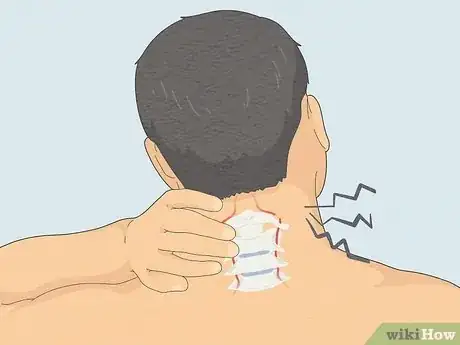
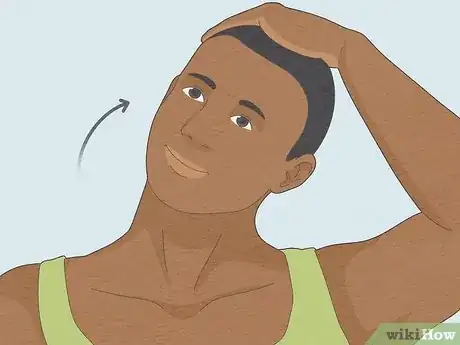
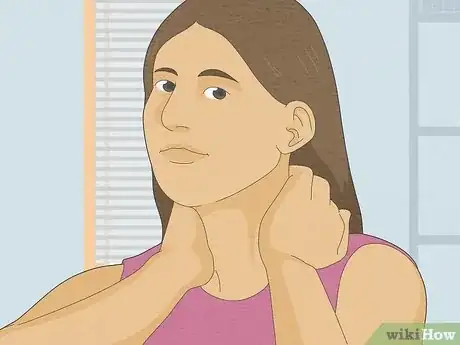
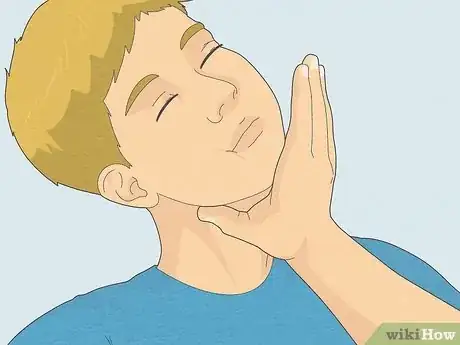

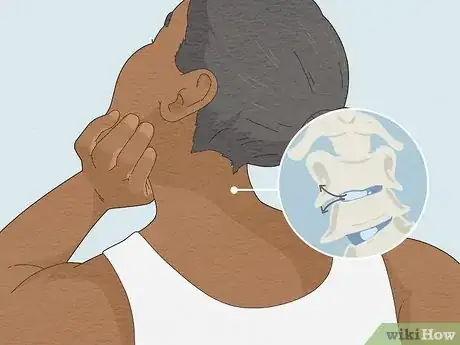
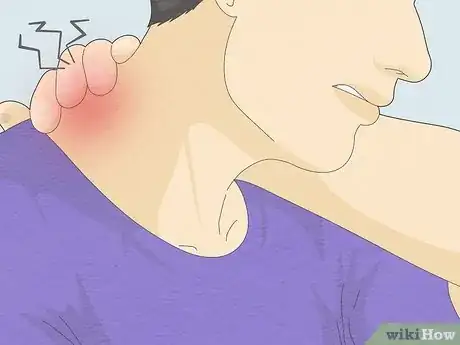
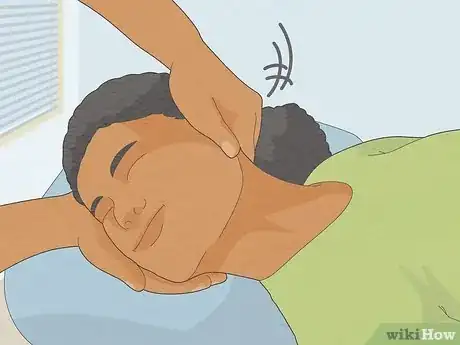
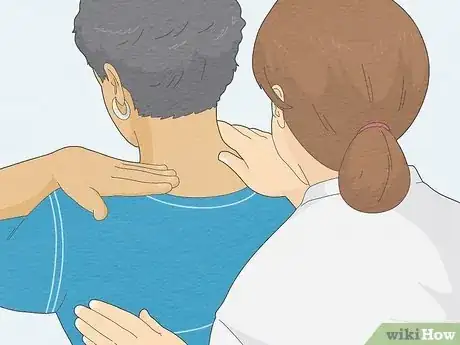
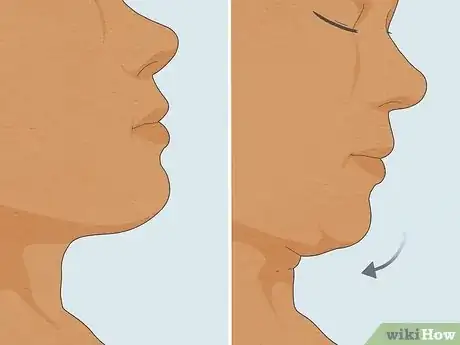
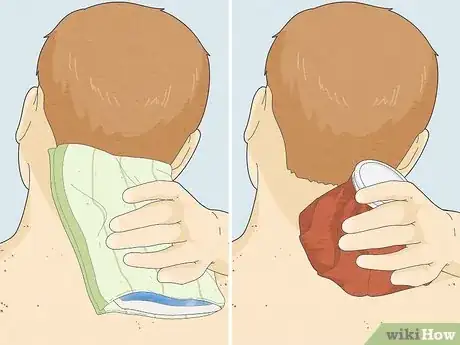
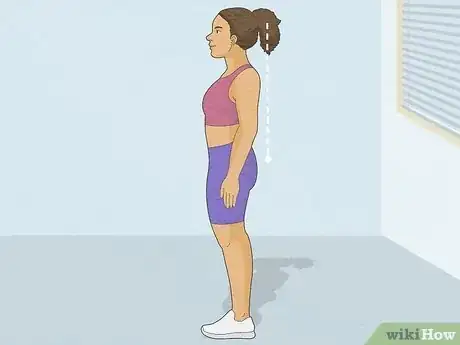
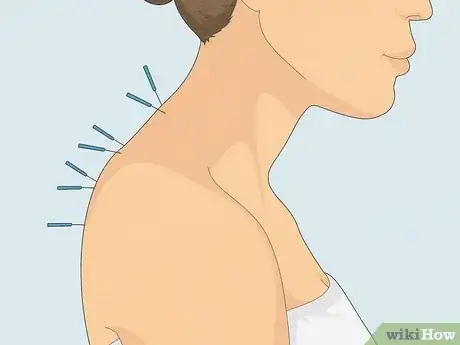


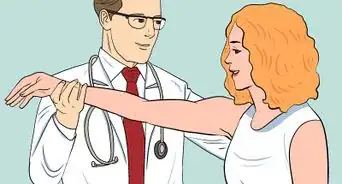
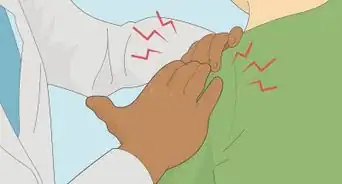
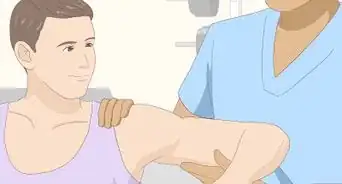
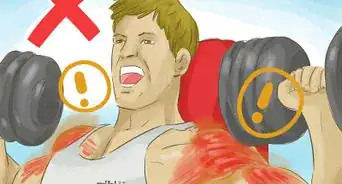
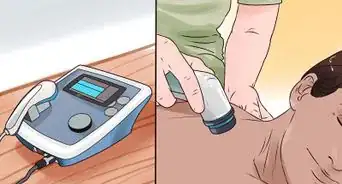

-Step-3-Version-3.webp)
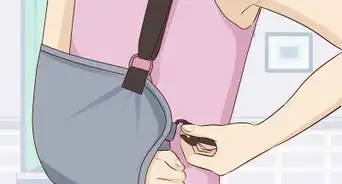

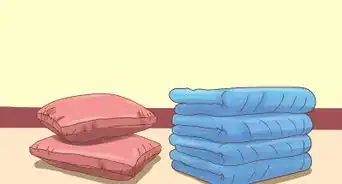











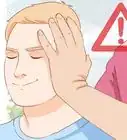

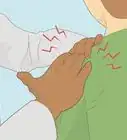



































Medical Disclaimer
The content of this article is not intended to be a substitute for professional medical advice, examination, diagnosis, or treatment. You should always contact your doctor or other qualified healthcare professional before starting, changing, or stopping any kind of health treatment.
Read More...